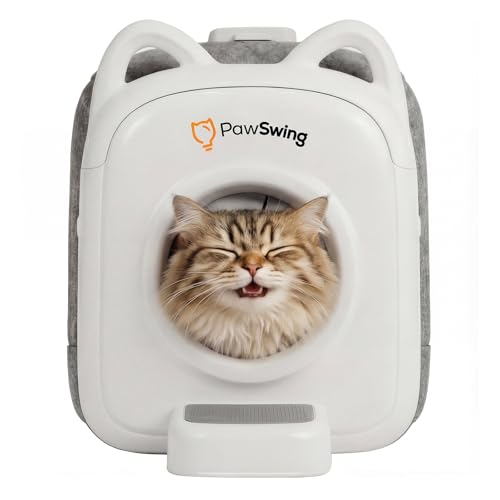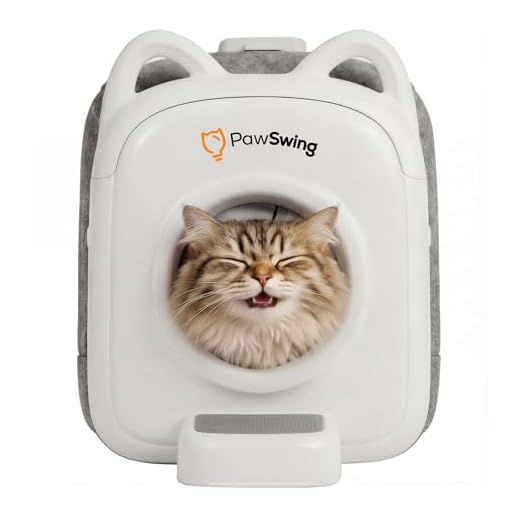When I gently press my tongue against your skin, it’s a sign of my affection and trust. This action reflects my bond with you, showing that I consider you part of my family. My instincts tell me that this behavior is a way to communicate love and comfort.
Additionally, this gesture can be traced back to my kittenhood. In my early days, the warm, nurturing presence of my mother was everything. By grooming her, I felt safe and secure. Now, I replicate that with you, reinforcing our connection. If you notice me doing this frequently, it indicates my desire for closeness and companionship.
Sometimes, this behavior is also a way to explore my surroundings. Your scent is unique and intriguing to me. By interacting with you this way, I gather information about my environment and the wonderful human I adore. If I seem to engage in this act more than usual, it might be my way of seeking comfort or reassurance, especially during changes in my surroundings.
To enhance our bond, consider reciprocating this affection. Pet me, talk to me softly, or even let me curl up beside you. This shared interaction will strengthen our relationship, making it even more special for both of us.
Why My Paw Touches You So Frequently
First off, it’s all about affection and bonding. My approach is a way to show love and trust. When I engage with your skin, it signifies a deep connection. It’s my way of saying, “You’re my favorite human!”
Another reason stems from instinctual behaviors. In the wild, my ancestors groomed each other as a sign of camaraderie and care. This habit carries over into my interactions with you, reflecting my social nature.
Sometimes, it relates to comfort. Your scent is familiar and soothing. By engaging with you, I feel safe and secure in my environment. This is especially true during times of stress or change.
It’s also a way to communicate. When I start this action, it may indicate that I want attention or playtime. Pay attention to my body language; it can reveal what I need at that moment.
Lastly, keep in mind that individual personalities differ. Some of us are naturally more affectionate than others. If my behavior seems excessive, it might just be my unique charm shining through.
| Reason | Description |
|---|---|
| Affection | A sign of love and trust. |
| Instinct | Reflects social grooming behaviors. |
| Comfort | Soothing action linked to your scent. |
| Communication | Indicates a desire for attention or play. |
| Personality | Varies among individuals; some are naturally affectionate. |
Understanding Grooming Behaviors
Engaging in personal hygiene is a natural instinct. I groom myself not only to stay clean but also to express comfort and relaxation. This behavior helps me manage my body temperature, removing loose fur and dirt along the way.
When I groom others, it signifies affection and trust. This social grooming strengthens bonds within my group. If I decide to focus on you, it indicates a deep connection and a desire to include you in my social circle.
Grooming can also serve as a stress-relief mechanism. If I seem anxious or restless, you might observe increased grooming activities. It calms me down and provides a sense of security.
Pay attention to my grooming frequency and style. Over-grooming may signal discomfort or health issues, while occasional grooming is perfectly normal. If you notice any changes, consider consulting a veterinarian.
Creating a calm environment enhances my grooming habits. A safe space encourages relaxation, allowing me to maintain my hygiene effectively. Providing enrichment activities can also reduce stress, leading to balanced grooming behaviors.
Identifying Signs of Affection in Felines
When my human showers me with attention, I respond in various ways that signal my fondness. A gentle purr, slow blinking, or a soft nudge with my head are all clear indicators of my affection. These behaviors not only foster our bond but also make my human feel appreciated.
Body language plays a significant role; an arched back or a relaxed posture suggests comfort and trust. If I approach with my tail held high and quivering slightly, it’s a warm greeting, showing that I feel safe and happy in my surroundings.
Another telling sign is when I follow my human around. This behavior indicates that I enjoy their company and want to be near them. Offering my belly for a rub is a big gesture of trust and love, as it exposes my vulnerable side.
My grooming rituals can also reflect my feelings. When I groom my human, it’s a way of including them in my social circle, almost like saying, “You’re part of my family.” Sharing my space, whether it’s curling up beside them or choosing their lap as my resting place, shows my affection and desire for closeness.
Understanding these signs can strengthen the bond we share. If you’re considering introducing a furry friend into the mix, check out the best puppy for cats to ensure a harmonious household.
How Environment Influences Licking Behavior
Specific surroundings significantly affect my grooming habits. For instance, a calm atmosphere encourages more affectionate grooming gestures. If my human is stressed or there’s chaos, I may refrain from expressing my feelings through grooming.
The presence of other pets also plays a role. If my territory feels threatened or I sense competition, I might become more reserved, choosing not to engage in grooming rituals. On the contrary, a peaceful coexistence with other furry friends often leads to shared grooming moments.
Temperature impacts my actions too. Warm, cozy spaces make me more inclined to show affection through grooming, while colder environments can make me more reserved, focusing on self-grooming instead.
Additionally, my human’s mood matters. If they are relaxed and happy, I often respond with grooming behavior. On days when they are feeling low, I might sense their energy and adjust my actions, becoming less affectionate.
Lastly, changes in routine can trigger different grooming patterns. If there’s a new addition to the household or a shift in daily activities, I may react by either increasing or decreasing my affectionate gestures to adapt to the new environment.
When to Be Concerned About Excessive Grooming
If your furry companion’s grooming habits seem unusually intense or frequent, it’s crucial to monitor the situation closely. Look for signs of irritation or distress, such as red or inflamed skin, hair loss, or excessive scratching. These symptoms may indicate underlying health issues like allergies, infections, or stress-related disorders.
Pay attention to behavioral changes. If your pet becomes withdrawn or shows signs of discomfort, it may signal a need for veterinary attention. Changes in appetite or litter box habits can also be red flags. Remember, early detection can make a significant difference in treatment outcomes.
Consult a veterinarian if you notice persistent licking that does not correspond with normal grooming behavior. They can help determine whether it’s a physical or psychological issue and recommend appropriate interventions.
In some cases, environmental factors can exacerbate the situation. Stressors like changes in routine or household dynamics might trigger heightened grooming behavior. Providing a calm and stable environment can help reduce these tendencies. For further insights on managing stress in pets, check out this article on are bmc lawn mowers any good.
Tips to Respond to Your Cat’s Licking
Engage with gentle petting to acknowledge your furry friend’s gestures. This creates a bond and shows appreciation for their affection.
- Observe their body language; if they seem relaxed, continue petting. If they appear tense, give them space.
- Use a soft voice to communicate; your tone can enhance their comfort and trust.
- Offer a favorite toy or treat to redirect their attention if the behavior becomes too intense.
- Establish a routine; consistency in interaction can help them feel secure.
Consider the environment; ensure it’s calm and familiar. Sudden changes can influence their actions.
- Limit distractions during bonding time to create a peaceful atmosphere.
- Incorporate play sessions to balance affection with energy expenditure.
If you notice excessive behavior, consult a veterinarian. Understanding underlying health issues is crucial for their well-being.
FAQ:
Why does my cat lick my hand so much?
Cats lick their owners for several reasons, primarily as a sign of affection. When a cat licks you, it may be trying to bond with you, showing that it feels safe and comfortable in your presence. Additionally, this behavior can be linked to their instinctual grooming habits. In the wild, cats groom each other to strengthen social bonds and maintain hygiene. Your cat may also see you as part of its family and is including you in its grooming routine. If the licking becomes excessive, it might indicate stress or anxiety, and observing the context can help determine if it’s purely affectionate or if something else is at play.
Is it normal for my cat to lick my hand excessively?
While occasional licking is typical cat behavior, excessive licking may warrant attention. Cats often lick to express affection, but if your cat is licking your hand repeatedly or seems anxious, it could be a sign of stress. Changes in your cat’s environment, such as new pets, moving to a new home, or changes in your routine, can lead to increased licking as a coping mechanism. If you notice other signs of anxiety or changes in behavior, consulting with a veterinarian can provide insight and help address any underlying issues.
What should I do if my cat licks my hand too much?
If your cat’s licking feels excessive or is causing irritation, it’s important to gently redirect this behavior. You can try distracting your cat with toys or engaging in playtime to provide alternative outlets for its energy and affection. Creating a calm environment can also help reduce anxiety, which may be contributing to the licking. If the behavior persists and seems to be linked to stress or anxiety, consider consulting a veterinarian or a feline behaviorist. They can offer strategies to help your cat feel more secure and reduce excessive licking.









